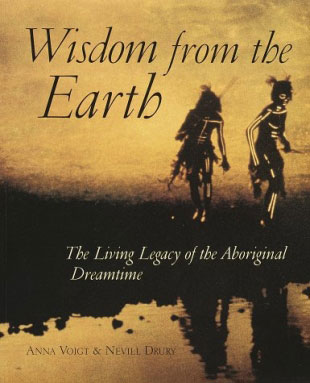"To all Aboriginal peoples the land is sacred and is the well-spring of all life forms and the heartland of all being. In this sense, the Earth is perceived to be the Mother of all. In continuous seasonal cycles of birth, life, death and rebirth — all aspects of which have names, personalities and histories — this Mother feeds, clothes, shelters and nurtures all living beings. The land is '. . . blood of our blood, bone of our bone . . .', the Earth, to an indigenous person is inseparable from their own bodies.
"Yami Lester, a Yankunytjatjara man from the north-west of South Australia, recalls learning about the land, people and culture as a child, when his parents:
"… just talked about the country. And I believed what they said. You couldn't doubt, it was just something real. The country wasn't just hills or creeks or trees. And I didn't feel like it was fairy tales they told me. It was real, our kuuti, the force that gives us life. Somebody created it, and whoever created it did it for us, so we could live and hunt and have a good time. That's how we come to be here because that marlu [the kangaroo] and ngintaka [the perentie lizard] created this image for us to live and breathe: the plants, the language, the people. And to have rain, wind and rain.'
"In conjunction with the perceptions of the sacred Earth Mother as creator and nurturer of all species and the interconnectedness of all life forms, Aboriginal peoples have a particular relationship to their own beloved regional land, for it is here that the history of their Ancestral lineage is encoded and manifested. This is what is meant by the terms, 'country', 'my/our land'. This more intimate connection to a certain area of sacred land is determined by one's conception and birth sites, and one's inherited custodial land, for it is these that determine one's totem, moiety and entire web of social relationships and responsibilities.
"So in traditional Aboriginal life it is not only the entire Earth that is held with reverence, it is also the specific country where one was 'dreamed' — that is, conceived from Ancestral Spirit, usually at a sacred water site where spirits reside awaiting rebirth. This home of their spirit is of fundamental importance to an Aboriginal person, for their 'home' or 'country' for the duration of their life is at the location of this conception spirit. Their spirit home is their home.
"Also, this country exists in totemic and kin relationship to the territories of others — within the overall boundaries of Dreamtime patterning irrevocably established by the Spirit Ancestors. So the Dreamtime and the sacred land in one's custodial care are inexorably and intimately linked, and traditional Aboriginal women and men dedicate their lives to honouring Ancestral Law embodied in the land. It is not so much a question of 'my land' or 'my country' being owned by an Aboriginal person or group, but rather that the land owns them. The land and self is inseparable to an Aboriginal person, and thus is intrinsic to her or his identity. This concept is eloquently expressed by Galarrwuy Yunupingu, a Yolngu man from the Yirrkala community in north-east Arnhem Land:
" 'Land is very close to the Aboriginal heart and we can actually feel sorry for land, like you would feel sorry for someone who has been hurt. We give land ceremonial names as a sign of respect and this is very important, like respecting your elders. We acknowledge the land by giving it a title that is not used every day; a special name so we always remember what it means to us. When you address an Aboriginal elder you use an important sacred name to show their status as a person, and it is the same for the land when we name it.'
"And as expressed elsewhere:
" 'The land is my backbone … I only stand straight, happy, proud and not ashamed about my colour because I still have land. I can paint, dance, create and sing as my ancestors did before me. I think of land as the history of my nation. It tells of how we came into being and what system we must live. My great ancestors who live in the times of history, planned everything that we practice now. The law of history says that we must not take land, fight over land, steal land, give land and so on. My land is mine only because I came in spirit from that land, and so did my ancestors of the same land.… My land is my foundation.' "
